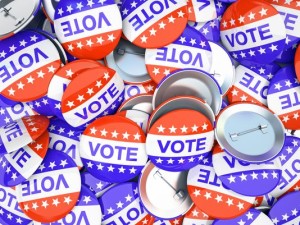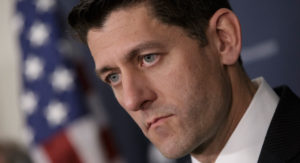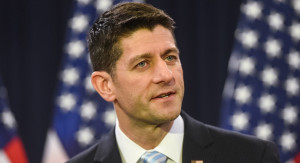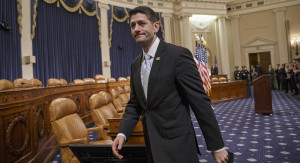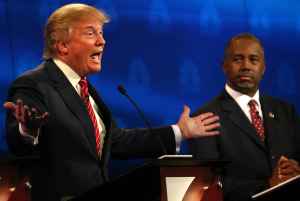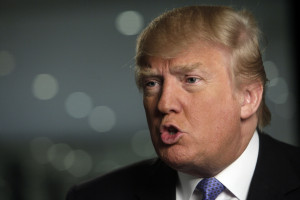You might be wondering: Just how messed up is today’s Republican Party?
I might have an example to share with you.
The former half-term Alaska governor, Sarah Palin, said she’s going to work to defeat House Speaker Paul Ryan in Wisconsin’s upcoming Republican primary.
Why would the 2008 GOP vice-presidential nominee do such a thing? Because the speaker says he cannot “yet” support the probable 2016 GOP presidential nominee, Donald J. Trump.
Palin has endorsed Trump. Ryan has so far declined. It’s not clear that he ever will. Why do you suppose the speaker is withholding his support?
My guess is that Trump isn’t a “real Republican,” that he doesn’t adhere sufficiently to basic Republican principles to suit the speaker.
Palin calls herself a true-blue Republican. But she’s backing Trump. Now she wants to work against a fellow true GOP believer, Ryan.
http://www.cnn.com/2016/05/08/politics/sarah-palin-paul-ryan-paul-nehlen-endorsement/index.html
As near as most of us can tell, the only principle to which Trump holds dear is to himself. I believe that’s why he’s been labeled a narcissist.
Sure, it’s appealing to a lot of Republican “base” voters who like how Trump “tells it like it is.” Someone, though, has to explain to me what “it” really is.
Trump and Ryan plan to meet this week, as I understand it. Will they settle their differences? Don’t look for a kumbaya moment after their meeting.
As for Palin, I guess she’s trying to make herself relevant yet again by seeking to defeat the nation’s most powerful Republican politician.
What she is managing to do, though, is demonstrate — as if it needed further demonstration in the context of this year’s presidential primary season — how dysfunctional this once-great political party has become.

